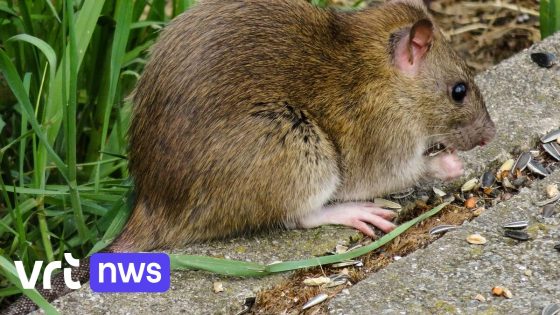In Tienen, the issue of clever rats continues to baffle local authorities. On February 28, 2025, officials revealed that only 27 rats have been caught in six months. Why are these intelligent creatures evading traps? Is it possible that well-meaning residents are inadvertently feeding them?
- Food is often scattered for stray animals.
- Good intentions can attract unwanted pests.
- Rats are intelligent and adaptive creatures.
- They avoid traps after learning about safety.
- Human actions impact local wildlife dynamics.
Why Are Rats Outsmarting Traps in Tienen, Belgium?
This ongoing struggle against rats poses a significant question: how can we effectively manage their population? Local officials believe that people are unintentionally luring rats by feeding stray cats and birds. Could this be the reason behind the low capture rate?
The Impact of Feeding Wildlife on Rat Populations
The act of feeding stray animals might seem harmless, but it creates unintended consequences. When food is left out, it not only attracts birds or cats but also draws in clever rodents like rats. Here’s what you need to know:
- Rats learn quickly where to find food.
- They often avoid traps if they feel safe nearby.
- This behavior complicates pest control efforts.
- Community education is vital for effective management.
The Role of Community Awareness in Pest Control
Community involvement plays a crucial role in addressing rat populations. Educating residents about the impact of their actions can lead to better practices around food disposal and wildlife feeding. By fostering awareness, communities can work together to reduce rat attraction points.
Effective Strategies for Managing Rat Populations
Pest control requires a multi-faceted approach. Here are some strategies that could help curb rat numbers:
- Limit outdoor food sources for pets and wildlife.
- Use humane traps strategically placed away from common gathering spots.
- Create community programs focused on educating residents about responsible feeding practices.
The Importance of Responsible Wildlife Feeding Practices
Caring for stray animals is commendable; however, it’s essential to consider potential repercussions. Instead of leaving food outdoors, consider alternative solutions such as supporting local shelters or providing resources for animal care without attracting pests.

































